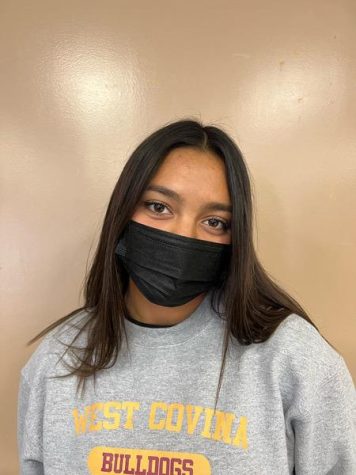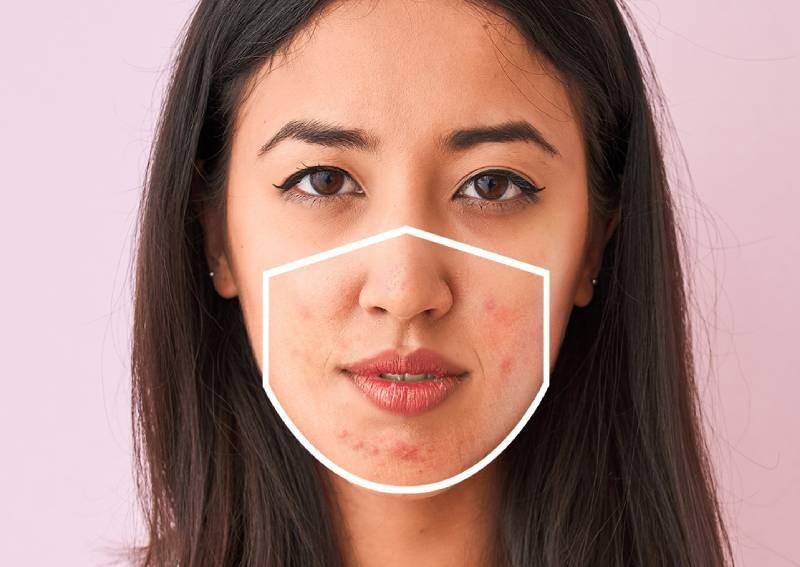“Maskne” and How to treat it
February 28, 2022
With having to wear masks for more than seven hours a day, five days a week, many students are starting to deal with acne caused by the mask or “maskne.”
As defined by Dr. Sajjad Rajpar on Midlandskin.co.uk, “maskne is when acne breakouts occur because of wearing a mask.”
Because many students are dealing with the same thing, a better understanding of why this is happening and recommendations on how to help or deal with it is needed.
Freshman Thy Nyguen has dealt with maskne and has a theory on why skin breaks out.

“When I breathe my mask causes humidity,” Nguyen said, on why she thinks wearing a mask gives rise to acne.
Faces become oily when there is heat being trapped in the mask caused from breathing inside of it, which can clog pores, especially if wearing makeup.
New York City dermatologist Joshua Zeichner weighs in on this theory.
“Protecting your face with a mask creates a moist, hot environment for your skin, as your breathing is being trapped. This can lead to a build-up of sweat and oil on the skin under the mask, which can lead to inflammation, rashes, and even acne breakouts,” Zeichner explains.
Sophomore Kimberly Torres has another theory on the causes of maskne.
“I think it depends on the mask; like if you’re wearing a cloth one you could wear it for a couple of days, but if you have the regular ones, change it every day,” Torres said.
During lunch, many students on campus put their masks down below their mouth, but don’t fully take it off. With that being said there could be a possibility of food getting on there and adding up inside, which causes bacteria.
“It’s the bacteria that’s working up, like when you’re talking it’s spitting and spitting,” sophomore Caitlin Cardona said.
“Your mask is not as sanitary as you think it is,” another sophomore, Samantha Guerra said. “When you eat, bacteria gets on there.”
Guerra, who’s dealt with maskne, has advice for those who are experiencing the same.
“Constantly wash your face when you get home, put it as your daily routine and it’ll help you,” she said, after seeing some changes in her skin after doing so.
In the Beth Israel Medical Center article titled “Mask-related Acne Tips from a Dermatologist” it states that cotton fabric masks are more breathable and less likely to cause skin irritation and/or acne.
Although cotton masks are more breathable, the Centers for Disease Control and Prevention recently recommended that teachers and students wear N95 masks, which are made out of multiple layers of synthetic material (typically a polypropylene plastic polymer). These types of masks do lead to greater bad skin reactions, according to Healio.com. That being the cause, if you’re wearing a higher protective mask you should try to change it every day, but also make sure to continue washing your face as soon as you get home.



